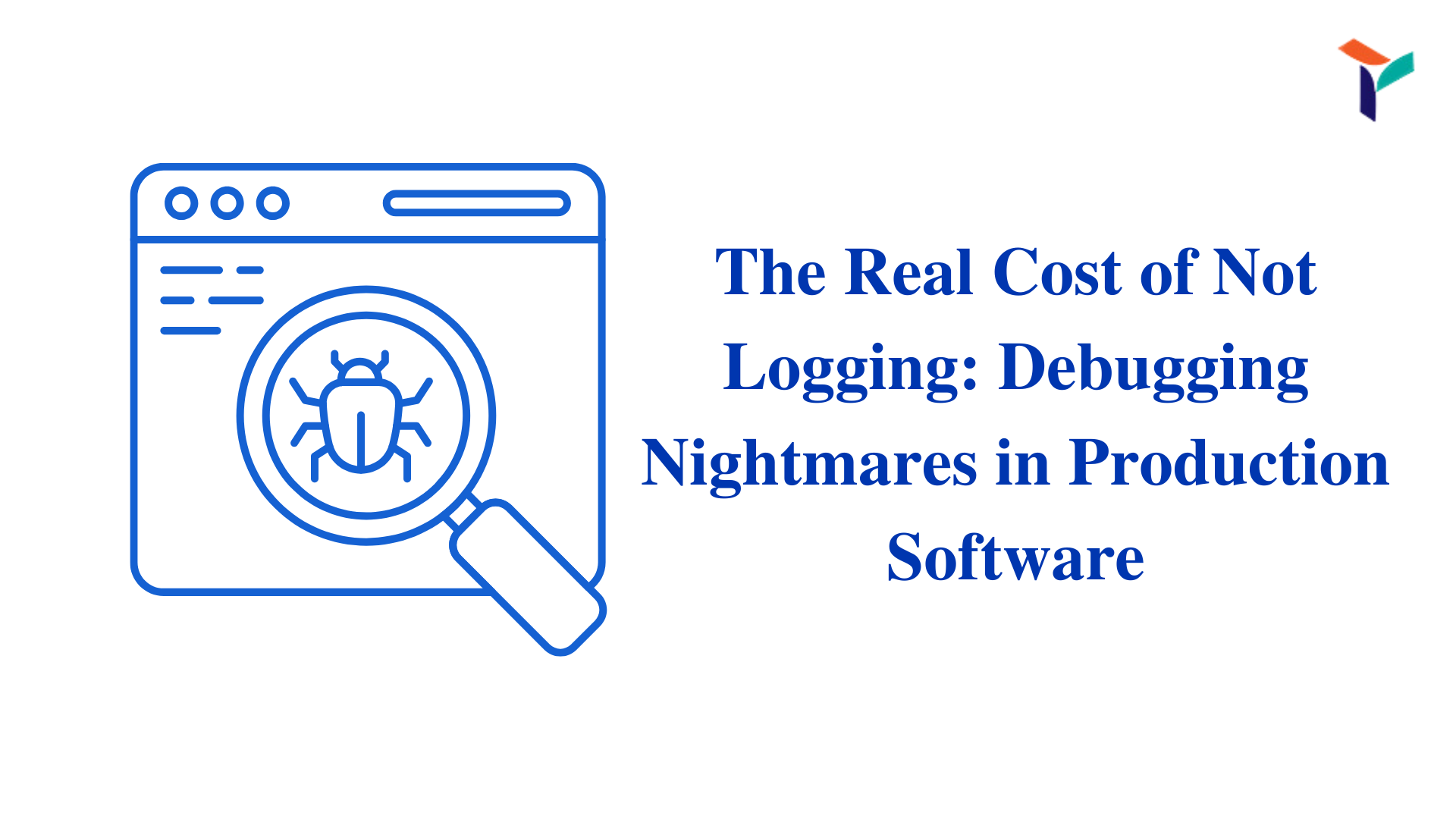A production issue hits. There is no crash report. No stack trace. No trail. Just a vague user complaint and a broken feature.
That is the reality when production logging is ignored or misused. Debugging becomes guesswork. Minor issues escalate. Timelines slip. Engineering hours are wasted.
The cost of not logging is not just technical—it is operational. Software becomes harder to support, monitoring fails silently, and customer trust erodes. Strong production logging minimizes downtime, accelerates fixes, and protects your development investment.
When logging is done properly, it enables effective software debugging, supports real-time monitoring, and ensures continuity across environments.
Why Logging Early and Logging Properly Saves Time and Cost
Lack of visibility is a liability. Production environments are unpredictable. Good logs are often the only reliable source of truth.
1. Missing Logs Mean Delayed Resolution
Bugs in production are expected. What matters is how quickly they are found and resolved. Without clear logs, even basic failures become time-consuming to trace. Input parameters, system responses, and user actions are lost. Developers are left recreating scenarios manually, often without success.
Post-mortems commonly reveal the same issue: logs were incomplete, missing, or not recorded at the right level. This delays fixes and increases the probability of recurrence.
2. Debugging Without Logs Is Inefficient
Without structured production logging, development teams are forced into trial-and-error workflows. A fix that could take minutes with clear diagnostic data often takes hours. Teams become reactive, spending time analyzing symptoms instead of causes.
For engineering teams working under pressure, this inefficiency adds up. The time lost compounds across multiple incidents.
3. Poor Logging Structures Create False Leads
Some logs exist but fail to provide meaningful insight. They capture irrelevant details or omit key variables. Others are too verbose, producing unstructured output that obscures the root cause.
Inconsistent log formats also disrupt centralized systems. Alerts misfire. Searches return incomplete results. Monitoring systems cannot correlate events, reducing their value.
Logs must be accurate, structured, and context-rich to be useful in production. Otherwise, they mislead more than they inform.
4. Production Logging Requires Standards
Effective logging is a shared responsibility. One well-logged module is not enough. If other services or layers are silent, you are missing critical context.
Every component should follow clear logging standards:
- Timestamp every log entry
- Label services and environments
- Maintain uniform log levels
- Record identifiers like request IDs and user IDs
Logging should be part of every review process. Developers must not treat it as optional or secondary.
The Hidden Costs of Poor Logging
Incomplete production logging has broader consequences:
- Slower Incident Response: Without precise logs, the time to resolution increases, which extends outages.
- Increased Operational Load: Engineers spend more time investigating and less time building.
- Customer Impact: Unresolved issues degrade user experience and reduce platform reliability.
- Tooling Workarounds: Gaps in logging require additional third-party tools, manual tracing, or audits.
- Compliance and Auditing Risks: In regulated industries, incomplete logging can result in penalties or failed audits.
What appears as a low-priority task becomes a high-cost problem later.
Key Logging Practices That Prevent Production Failures
Logging should not be complex, but it must be deliberate. These practices reduce failure points:
- Define Log Levels Clearly: Separate INFO, DEBUG, ERROR, and FATAL with precise use cases.
- Log Contextual Metadata: Include user IDs, API endpoints, and request-specific identifiers.
- Avoid Log Noise: Capture useful signals, not large volumes of unrelated text.
- Use Structured Formats: JSON and key-value logs improve compatibility with log management tools.
- Centralize All Logs: Aggregate logs from all services to a single system for traceability.
- Set Retention Policies: Store logs long enough to cover incident response windows but within compliance limits.
Standardizing logging is a one-time setup. The long-term benefits significantly outweigh the effort.
Conclusion
Neglecting production logging compromises your ability to support, debug, and maintain software in live environments. It introduces delay, increases cost, and impacts reliability. Production logging should be implemented from the start and maintained as a core development practice.
Proper log management supports real-time monitoring, reduces incident response time, and provides engineers with the clarity they need to act quickly. Without it, the software becomes harder to control.
TRIOTECH SYSTEMS ensures all deployed systems follow production logging best practices, providing teams with clear, actionable data during both development and support phases.




